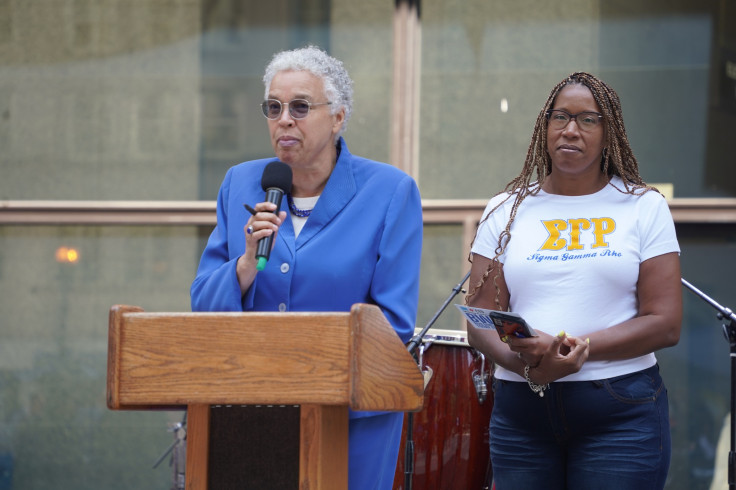
High-speed internet plays a massive part in the lives of most people; however, Latinos are less likely to have access to broadband internet or devices to access the web than other demographics. About 65 percent of Latino households reported having access to home broadband in a 2021 Pew Research survey, a figure that contrasts with 80 percent when it came to white respondents. Access to desktop or laptop computers was also lacking in Latino households, with only 67 percent having access.
Cook County, which encompasses Chicago and is Illinois' most populous county, is launching a new initiative to bridge the digital divide and increase access to internet connectivity for Latinos and other marginalized communities.
The Digital Equity Action Plan takes a four-pronged approach to expanding Internet access by investing in accessibility, confidence, safety and infrastructure. Its main goals are increasing internet access and comfortability in using digital technologies.
"Digital equity is not just a goal; it's a commitment to ensuring that every Cook County resident, regardless of their background or location, have the tools and opportunities they need to thrive in today's digital world," said Kyla Williams Tate, Director of Digital Equity. "Our Digital Equity Action Plan is a roadmap to bridge the digital divide, and together with our community, we will build a more inclusive and connected Cook County."
Currently, only 73 percent of all Cook County residents have broadband access. However, data from a newly released map shows that Latino and Black communities in and near Chicago have the least access to high-speed internet.
As part of the accessibility approach, Cook County will offer residents subsidized internet plans to reduce the cost of monthly internet services. According to the report, households often rely on cellular data plans for online tasks instead of monthly internet subscriptions. This part of the plan will also increase the number of public Wi-Fi connections at schools, libraries, hospitals and community centers.
"Cellular data plans, while sufficient for some online tasks, are often not robust enough to allow users to fully participate in all internet activities," said the report.
The county will host courses ranging from digital literacy to tutorials on using phones and tablets throughout the week of October 2 through October 6, colloquially known as Digital Inclusion Week (DIW). These courses aim to make residents comfortable with technology and teach them about digital safety.
Infrastructure will be another big topic for Cook County as it looks to increase internet access. According to a county survey, residents in the south and west sides of Chicago have the least access to internet services. The county will work with partners to build the infrastructure in those areas and improve internet access for Black and Brown communities.
"The quality of digital equity in Cook County affects the economy, well-being and social connection of every resident, though some communities are more affected than others and in unique ways," said Cook County Board President Toni Preckwinkle.
Latinos are facing similar barriers to accessing broadband services elsewhere in the country. And in rural communities, the effects of not having high-speed internet can be devastating to residents.
In 2020, The Hill reported that in some rural Latino communities, only 42 percent of residents had access to broadband internet. In those communities, residents faced hardships with online schooling during COVID-19 and struggled to find information on COVID-19 due to their limited access to the web.
New York City, which similarly to Chicago has large Latino populations and communities, has also faced digital disparities. According to data from the City Council, 36 percent of Hispanic households do not have access to high-speed internet. There, the city took a different approach to closing the divide and introduced legislation to provide students with mobile hotspot devices.
© 2025 Latin Times. All rights reserved. Do not reproduce without permission.





